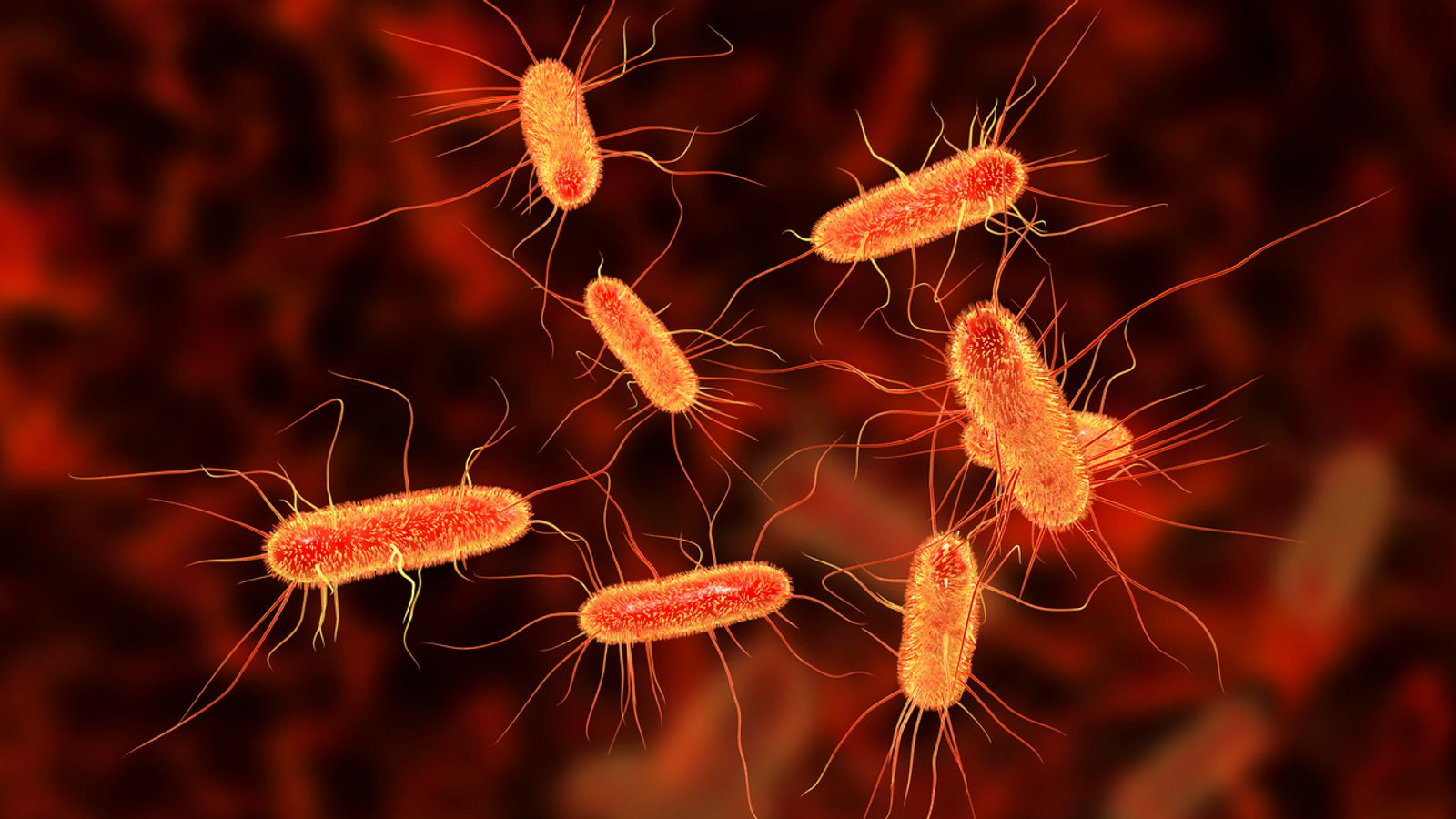An urgent health warning has been issued after an E.coli outbreak was linked to a “nationally distributed food item”.
An unspecified number of people are being treated in hospital due to the outbreak, the UK Health Security Agency (UKHSA) has said.
The UKHSA said testing indicates that most of the 113 cases reported in the UK are “part of a single outbreak” but did not give more details about the “food item” thought to be responsible.
The cases range in age from two years old to 79, with the majority of the infections in young adults.
The cases breakdown as:
• 81 in England
• 18 in Wales
• 13 in Scotland
• 1 in Northern Ireland (for this case, evidence suggests that they acquired their infection while visiting England)
Of the 81 cases in England, the UKHSA said around 37 people had been hospitalised.
In a statement, the agency said: “Based on the wide geographic spread of cases, it is most likely that this outbreak is linked to a nationally distributed food item or multiple food items.”
All the cases recorded in the outbreak involve Shiga toxin-producing E. coli O145 (Stec) – which can cause severe diarrhoea as well as stomach cramps and fever.
Symptoms can last up to two weeks and in some patients, mainly children, it can cause haemolytic uraemic syndrome (HUS) – a serious life-threatening condition resulting in kidney failure.
A small proportion of adults may develop a similar condition.
It is often transmitted by eating contaminated food but can also be spread by close contact with an infected person, as well as direct contact with an infected animal or its environment.
But the UKHSA ruled out the disease spreading through water, saying there was “currently no evidence linking the outbreak to open farms, drinking water or swimming in contaminated seawater, lakes or rivers.”
Follow Sky News on WhatsApp
Keep up with all the latest news from the UK and around the world by following Sky News
Tap here
Darren Whitby, head of incidents and resilience at the Food Standards Agency (FSA), said: “The FSA is working with UKHSA and relevant public health bodies to identify the source of the illness, which is likely to be linked to one or more food items.
“We always advise consumers and those looking after vulnerable people to ensure good hygiene practices are followed when handling and preparing food, regularly washing hands with soap and warm water and ensuring equipment, utensils and surfaces foods come into contact with are cleaned thoroughly to prevent cross contamination.
“You should not prepare food for others if you have had symptoms, or for 48 hours after symptoms stop.”
Even though the source of the outbreak remains unknown, the UKHSA issued some further guidance to reduce the risk of catching, and spreading, the disease.
They said:
• Regularly wash your hands with warm water and soap – alcohol gels do not kill all of the bugs that cause diarrhoeal illness
• Follow food hygiene measures such as washing fruit and vegetables and cooking food properly
• If you have diarrhoea and vomiting, you should not prepare food for others and avoid visiting people in hospitals or care homes to avoid passing on the infection
• You should not return to work, school or nursery until 48 hours after your symptoms have stopped












Post comments (0)